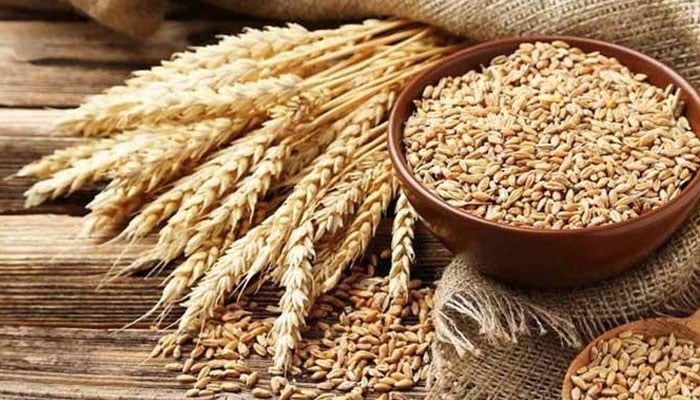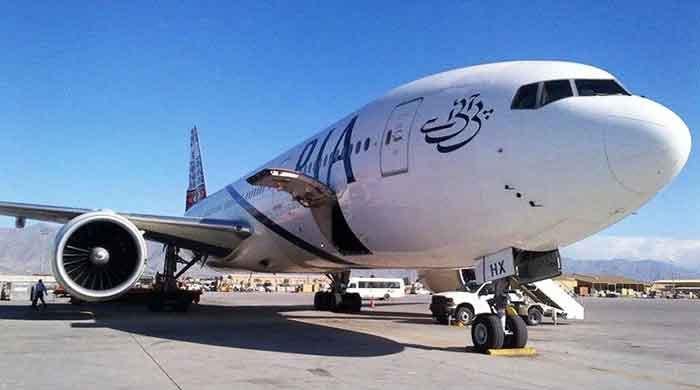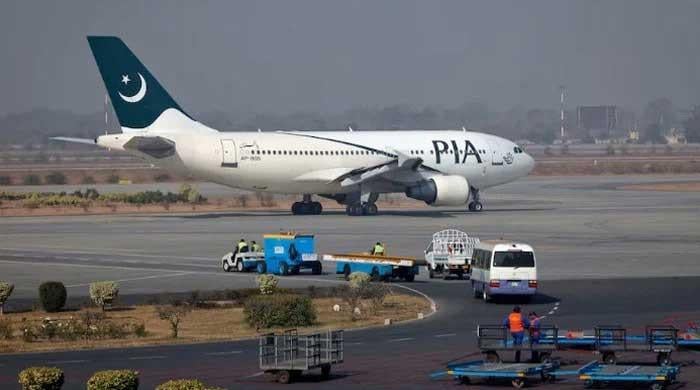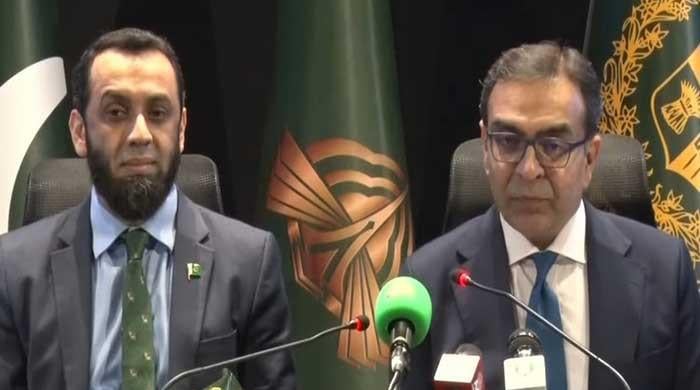Extra wheat import caused over Rs300bn loss, food ministry tells PM
Sources say on direction of PM Shehbaz, a significant progress has been made in investigation of wheat scandal
May 02, 2024

- Wheat traders were exempted from customs duty, say sources.
- 28.18 mn tonnes of wheat was produced last year.
- Wheat being sold at lower price than official rate.
ISLAMABAD: Prime Minister Shehbaz Sharif has been apprised that under an organised plan, extra wheat was imported during the caretaker government’s period which caused a loss of more than 300 billion rupees, Geo News reported on Thursday citing sources.
The sources said on the direction of PM Shehbaz, significant progress had been made in the investigation of the wheat scandal.
According to sources, the Ministry of National Food Security told the Prime Minister's Office in a briefing that during the caretaker government’s tenure, on the recommendation of the Ministry of Finance, the private sector was given a complete exemption on import instead of a fixed limit and wheat traders were also exempted from the customs duty and general sales tax.
In the briefing, it was apprised that 28.18 million tonnes of wheat was produced last year and the caretaker government decided to import 2.45 million tonnes more.
The sources said Pakistan Agricultural Storage & Services Corporation Limited (PASSCO), the government’s main grain procurement and storage agency, and provincial departments could only buy 5.87 million tonnes of wheat instead of the required target of 7.80 million tonnes from the growers.
The briefing said that after the approval of the interim cabinet, the Ministry of National Food Security sent a summary, ignoring the recommendations of the Ministry of Commerce and Trading Corporation of Pakistan (TCP).
It should be noted that the wheat crop is ready in the country and the price per 40kg has also been set by the provincial governments. However, the Punjab and Balochistan governments are yet to start the purchase from the farmers.
Due to the non-purchase of wheat by the provincial governments, wheat is being sold at a lower price than the official rate, which is worrying the farmers.









